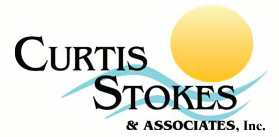Call Us: 855.266.5676 | 954.684.0218
Email Us: info@curtisstokes.net 
Call Us: 855.266.5676 | 954.684.0218
Email Us: info@curtisstokes.net 
by Jim Healy

A boat survey is a multi-step business process that is initiated by a boat owner or prospective boat buyer. The purpose of the survey is to establish the safety, seaworthiness and market value of the vessel. The survey process consists of the following steps:

There are two types of surveys. One is the pre-purchase survey, and the other is the insurance survey.
A pre-purchase survey is commissioned by a prospective boat buyer. Its primary purpose is to confirm representations made by the seller to the buyer as an inducement to purchase, and to identify as far as possible any unknown conditions or defects that affect safety, seaworthiness and value. Because the buyer is unfamiliar with the vessel and its history of use and operation, the pre-purchase survey will involve many personal judgement factors on the part of the surveyor, including cosmetic condition and opinions relative to condition and suitability-for-purpose.
Prior to issuing a liability and casualty insurance policy for pleasure craft, virtually all insurance underwriters will require the applicant to submit a survey report about the boat. The survey report will accompany and be part of the application for insurance. Application for insurance can occur at the time a boat is first purchased, or it can occur with policy renewal after 5 – 7 years of boat ownership. An insurance survey is generally more limited in scope than a pre-purchase survey. At purchase time, a buyer wants to know as much as possible about the boat before committing to the purchase. An insurance company wants to know the boat isn’t going to sink, catch fire, or create a liability issue in operation. An existing owner is less concerned with cosmetic condition and fitness-for-purpose issues and more concerned with safety and seaworthiness issue.

Surveyors perform both pre-purchase and insurance survey inspections. Surveyors are independent small business people. While Homeowner’s liability and casualty insurance is not conditioned on the findings of the home inspection, liability and casualty insurance for pleasure craft is often conditioned on the findings of the boat survey. Home inspectors assess a residence or building against national, state and municipal building codes and workmanship standards. Surveyors assess boats for conformance to established and accepted marine safety standards and workmanship practices in an effort to identify real or potential seaworthiness and safety issues, and to assign a monetary “value” to the boat. For boats, the principle safety and seaworthiness standards used in the U. S. to assess the boat are USCG requirements for Pleasure Craft and the collected works of the American Boat and Yacht Council (ABYC). To assess market value, multiple marketing sources are normally consulted. Establishing market value can be very subjective, particularly in unstable markets or with custom or unusual boats. The “judgement and experience” of the individual surveyor will be significant contributors to risk and market value assessments.
In selecting and qualifying a surveyor, boat buyers and owners should be aware of surveyor’s professional competence. Experienced surveyors have a broad range of experience in all areas of boat mechanical systems, boat construction and maintenance. An individual practitioner’s skills as a surveyor can be certified (endorsed) after review, verification of experience and training by one of several national certifying organizations of marine surveyors. These organizations include the Society of Accredited Marine Surveyors® (SAMS), the National Association of Marine Surveyors (NAMSGlobal), and The Association of Certified Marine Surveyors (ACMS). Some independent surveyors are not certified by any of these nationwide professional organizations. Surveyor certification is not required by law. Insurance underwriters can and do refuse to accept boat evaluation reports from individual surveyors. The most harsh and cynical way to state that is: “black-ball.”

I do not in any way advocate incomplete or misleading reporting of true, factual safety or seaworthiness issues about any boat. However, I do believe that boat owners who commission survey reports are entering into a business transaction with a surveyor that should always be professional and fair to all interested parties. Obtaining boat insurance should be based on correct and true representations by all parties. It has been my experience that there is sometimes the appearance that a surveyor might place their ongoing relationship with insurance underwriters above their one-time relationship with individual boat buyers/owners. I offer the following thoughts in the hope that any appearance of undue allegiance between the surveyor and the insurance industry can be neutralized and overcome in an honest and mutually satisfactory way with careful and considerate up-front dialog, prior to the start of the survey.
The work-product created by a surveyor is a written report (survey report) consisting at a minimum of the following:
The boat owner will eventually submit the survey report to their insurance underwriter. The underwriter will review the survey findings, and the surveyor’s assessments. The result will be:

I believe surveyors are fundamentally honest, skilled and qualified professionals who try to be thorough and fair. Nevertheless, there can be an appearance of divided loyalty associated with a surveyor’s professional responsibilities. Knowing that the survey will eventually become the basis of both insured hull value, as well as for unexpected, unplanned, potentially significant corrective action costs, I offer the following suggestions for managing the survey:
but in any case, the boat owner is entitled to know what type of corrective action is needed for the condition that the surveyor has cited.
By Jim Healy from his Blog Travels of the Monk 36 Trawler, Sanctuary
Disclaimer: Curtis Stokes and Associates does not necessarily agree or promote the content by the above author. This content is to be used only with the reader’s discretion.

© 2024 Curtis Stokes & Associates, Inc. | All rights reserved.